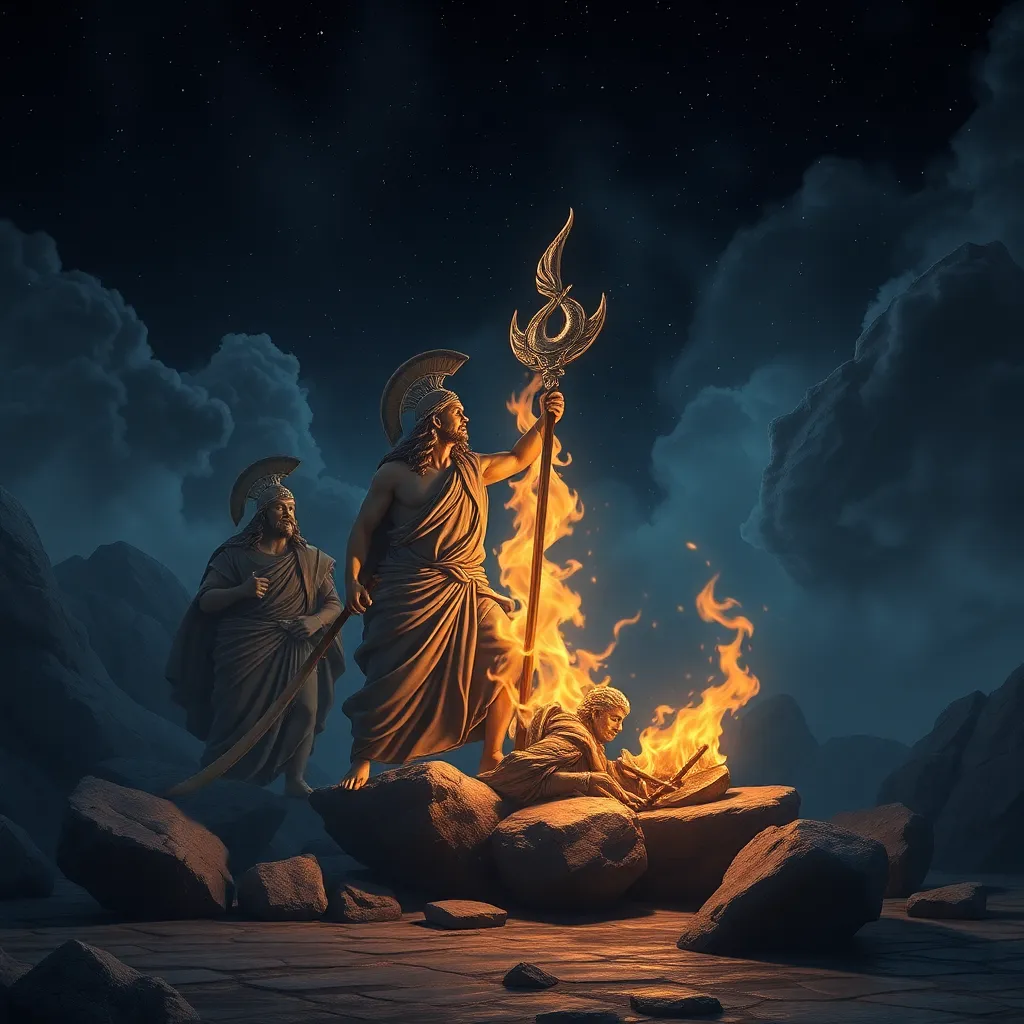The Role of Sacrifice in the Adventures of Greek Heroes
I. Introduction
In the realm of Greek mythology, sacrifice holds a profound significance, often intertwined with the journeys of its heroes. Sacrifice can be defined as the act of giving up something valuable for the sake of something greater, a theme that resonates deeply within the narratives of these legendary figures. This article explores the importance of sacrifice in the hero’s journey, examining how it shapes character, influences outcomes, and reflects broader societal values.
Throughout this exploration, key themes will be addressed, including the concept of heroism, the transformative power of sacrifice, the pivotal choices made by heroes, divine influences, and the communal aspects of sacrifice.
II. The Concept of Heroism in Greek Mythology
Greek heroes are often depicted as larger-than-life figures endowed with extraordinary abilities, yet they possess human flaws and vulnerabilities. Their heroism is defined by several key characteristics:
- Courage in the face of adversity
- A strong sense of duty and honor
- Willingness to endure suffering for the sake of others
- Exceptional strength or skill
The relationship between heroism and sacrifice is intrinsic; heroes often face choices that pit their personal desires against their responsibilities to others. For example, figures such as Heracles, Achilles, and Odysseus exemplify this duality, as they navigate their quests while confronting the demands of fate and duty.
III. Sacrifice as a Catalyst for Transformation
In Greek mythology, sacrifice is not merely an act of loss but a catalyst for personal growth and transformation. The trials and tribulations that heroes endure often lead to profound changes in their character and understanding of their roles in the world.
Consider the case of Perseus, who faced the daunting challenge of slaying Medusa, the Gorgon. His journey required not only physical strength but also the willingness to sacrifice his comfort and safety. Through this act, Perseus transformed from a mere mortal into a celebrated hero, demonstrating how sacrifice can lead to personal evolution.
IV. The Sacrificial Choices of Greek Heroes
The dilemmas faced by Greek heroes often revolve around the tension between personal desire and duty. For instance, Achilles, in his pursuit of glory, ultimately chooses to sacrifice his life for the sake of honor in the Trojan War. Similarly, Hector, defending his city, makes the heartbreaking decision to confront Achilles, understanding the potential cost of his life.
These choices significantly impact their journeys, leading to both triumphs and tragedies. The sacrifices made by these heroes echo the values of their society, emphasizing the importance of honor, loyalty, and the greater good.
V. The Role of the Gods in Heroic Sacrifice
Divine intervention plays a crucial role in the sacrifices made by Greek heroes. The gods often set trials for their favored mortals, encouraging them to make sacrifices that prove their worthiness or allegiance. The expectations of the gods regarding human sacrifices often reflect their own desires and conflicts.
A notable example is Heracles and his Twelve Labors, where each task requires immense sacrifice and endurance. Heracles’ willingness to undertake these challenges not only fulfills the demands of the gods but also cements his status as a legendary hero.
VI. Sacrifice and Community: The Greater Good
Individual sacrifices made by heroes often serve to benefit their communities. The stories of Greek mythology frequently highlight how the actions of a single hero can lead to the salvation or prosperity of an entire city or nation.
Collective sacrifices are also prevalent in mythological narratives. The tale of the Trojan War exemplifies how the sacrifices of many, including the loss of lives and the destruction of cities, are portrayed as necessary for achieving a greater purpose.
This notion of communal values underscores the belief that heroism is not solely an individual endeavor but one that resonates within the fabric of society.
VII. The Legacy of Sacrifice in Greek Mythology
The narratives of Greek mythology are rich with themes of sacrifice, shaping both the stories and the morals conveyed through them. The lessons learned from these sacrifices continue to influence modern storytelling, reminding us of the enduring nature of these themes.
In contemporary literature and film, echoes of Greek heroism and sacrifice can be observed, often manifesting in characters who must choose between personal desires and the needs of others. The archetype of the hero who sacrifices for the greater good remains a powerful narrative force across cultures.
VIII. Conclusion
In summary, the significance of sacrifice in the adventures of Greek heroes cannot be overstated. It serves as a defining element of their journeys, shaping their identities and the outcomes of their quests. The timeless nature of sacrifice resonates within the context of heroism, reflecting values that are still relevant today.
As we reflect on these themes, it becomes clear that the lessons of sacrifice, duty, and the greater good continue to influence our understanding of heroism in contemporary society. The stories of Greek mythology remind us that true heroism often comes at a cost, a sacrifice that ultimately enriches the lives of others.




